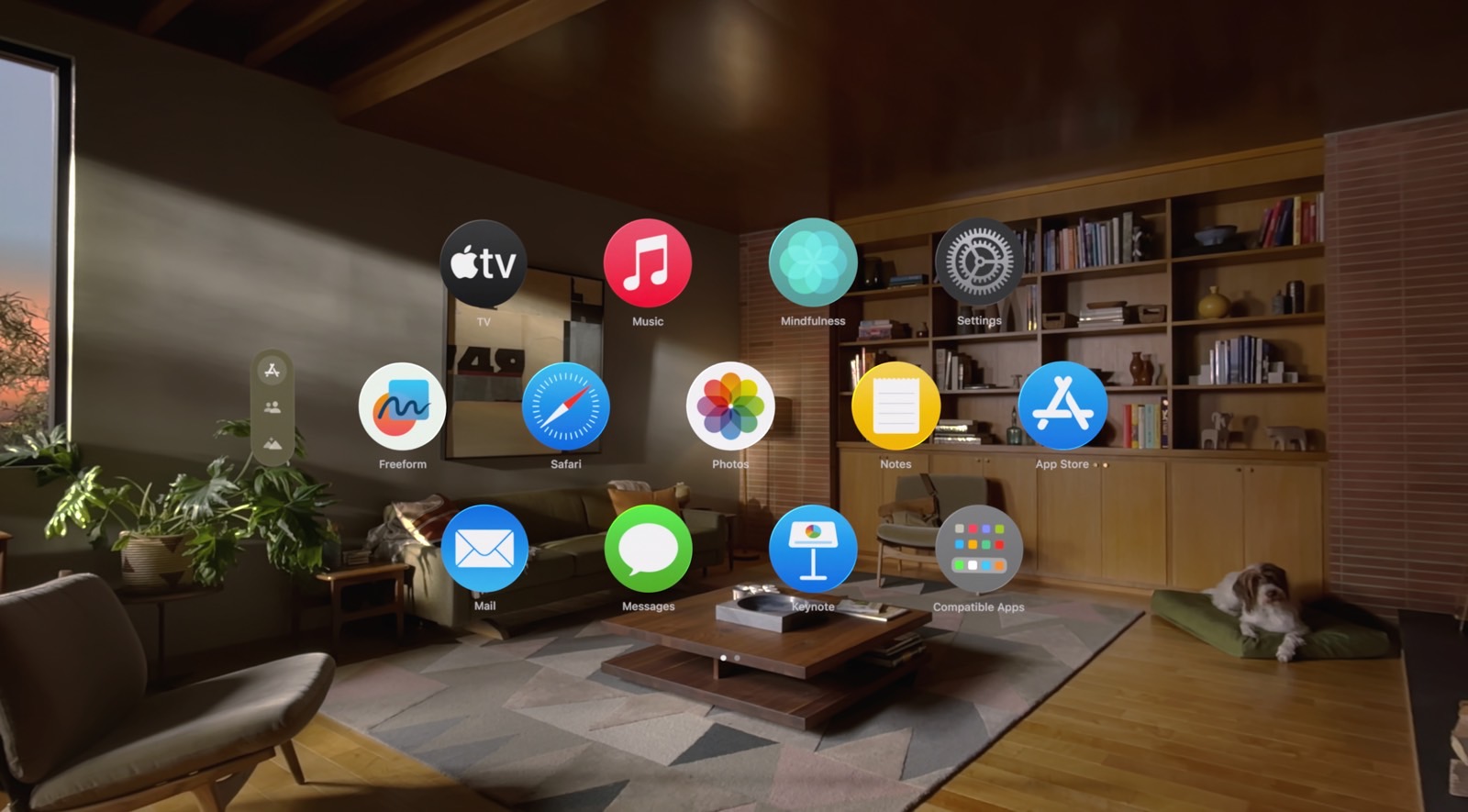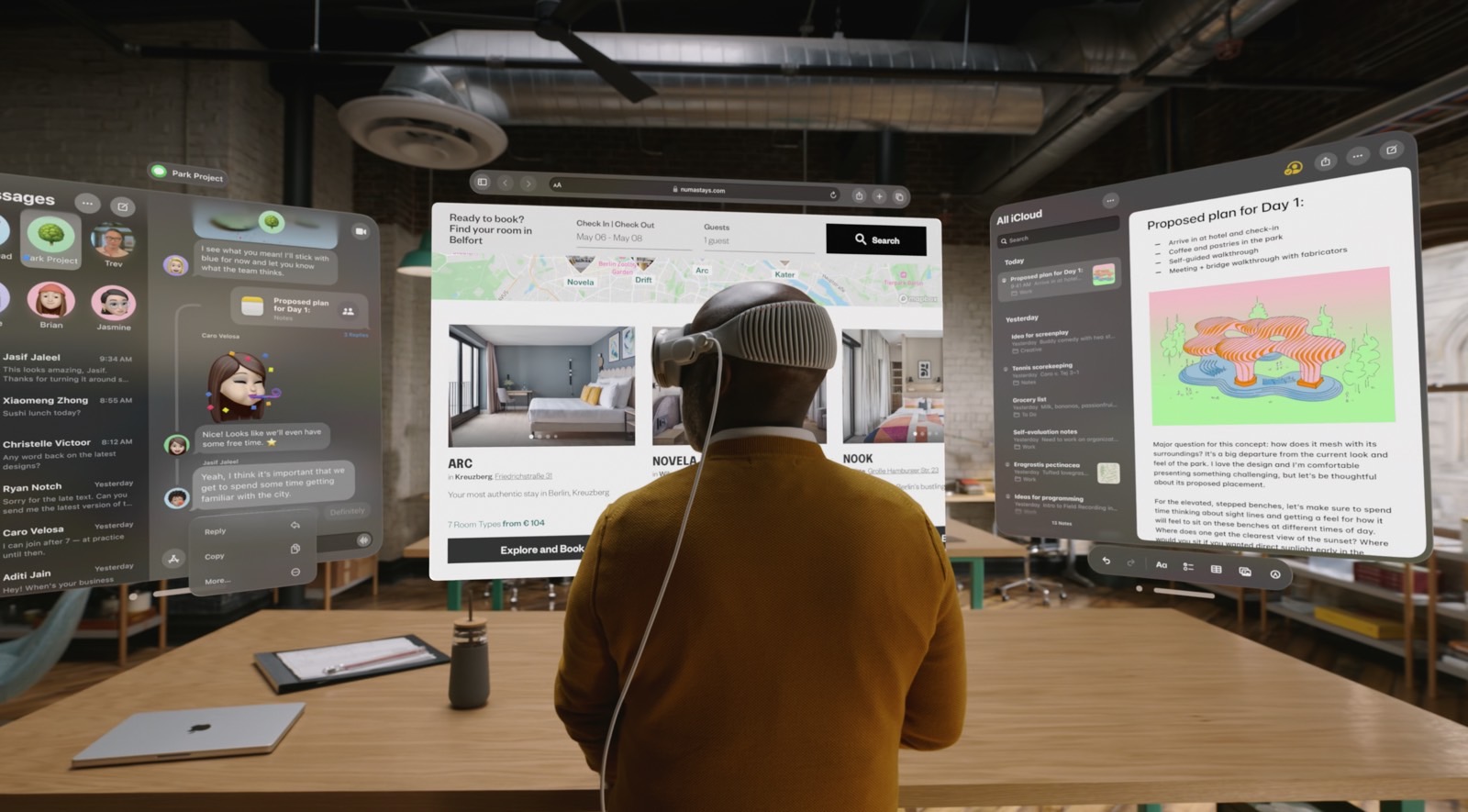I came to Paris for Samsung’s new foldable phones, and I stayed for the Apple Vision Pro. Apple has finally launched the spatial computer in Europe and other international markets, which means you can schedule an appointment to start your purchase process.
At the very least, trying the Vision Pro experience in an Apple store will give you your official measurements, so when you’re ready to order, you’ll have them handy.
But the demo is much more than that. It’ll show you what the Vision Pro is all about, what the computer of the future might be, and highlight a few of its limitations.
If I liked the Vision Pro before trying it, I have to say I like it even more now that I went through that 30 minutes demo that seemed way too short. I’m not closer to buying the Vision Pro than I was on Friday, and I’m not sure if that will change in the very near future.
The spatial computer launched several months ago in the US, and we’ve already reviewed the Vision Pro for you. We’ve also covered everything there is to know about it.
The Vision Pro demos you get in international markets now are similar to the ones in the US. The spatial computer runs visionOS 1, so you won’t get any novelties in visionOS 2. Those can’t make it into Apple demos until Apple is ready to roll out the update. Not that the short Apple demo covers everything.
The entire setup process was incredibly easy. A scan of the face similar to Face ID tells Apple what your size is, but not before the Apple staff make sure you don’t need optical inserts. Once the scan is done, you get the Apple Vision with a Light Seal that should fit your face as well as possible.
The device also comes with headbands. While I prefer the Solo Knit Band design, I was happy to see Apple using the Dual Loop Band for the demos. The latter should distribute weight better and make the spatial computer seem easier to carry. Weight is a problem for the Vision Pro, as many users have complained about it. However, the device is a lot smaller than I had anticipated.

I’ll need a longer session to determine whether I can comfortably wear the Vision Pro. I felt some pressure on my cheekbones, but a readjustment of the wearable made it disappear. I’m sure the excitement and adrenaline made me ignore the headset’s weight just as fast as I felt the pressure.
The setup process is also incredibly easy and fast. Or, I’d better say it was very fast for me. I already knew what I’d be going through, as I’ve been covering the headset for months. The Vision Pro scans your hands, and then the eye-tracking system is calibrated for your eyes. Once that’s done, the actual demo starts, and you can experience everything the Vision Pro can do.
The Vision Pro navigation is easy and fast. Just look with your eyes and then tap with your fingers. But, again, this might be because I’ve already gone through other people’s hands-on experiences in the past few months, so I knew what to expect.
I had no problem finding menus, going into apps and back to the home screen, and learning all the gestures. I moved around app windows and brought them closer to my eyes.
In all of this, I felt this should be the computing experience of the future. You see everything around you, and you interact with it by looking and touching.

The only thing that’s missing from the experience is voice control. It would be so much easier to tell the Vision Pro to bring this window forward or open that app and position it in a specific way on the screen. That’s probably coming to the Vision Pro when Apple Intelligence is ready for spatial computing. But not this year.
The demos were incredible, especially the experiences Apple prepared for them. The Apple Genius member walking me through the demo warned me that we could pause whenever I needed to, especially if I were frightened or experienced any other emotions.
I never had to stop the immersive experience, but I did react to what was happening in front of my eyes. At one point, a basketball was thrown my way, and I pushed my hands out to catch it so it wouldn’t hit me in the face. Then, a trio of (baby?) rhinos came within a few inches of me, and I held my breath for a second before my brain told my eyes they were not real and that they wouldn’t trample me.
Watching content on the Vision Pro is also something you have to experience. It’s not just the massive screen you put in front of your eyes; it’s the ability to immerse yourself in that content. It’s an experience you can’t replicate with any type of computer that doesn’t cover your face.
On that note, yes, spatial videos and photos are something else. Even if I’m not going to buy the Vision Pro anytime soon, I’ll surely remember to capture spatial videos with my next iPhone. They’ll surely come in handy later down the road.
The Vision Pro hands-on also answered one of my biggest questions about the spatial computer. I didn’t get nauseated at any point during the demo, no matter where I moved my eyes or how fast I did it. This was a major concern since I’m prone to motion sickness sometimes. I would still need to see how I feel after extended use of the Vision Pro, but so far, so good.

After all that, I’m certain I’ll have a Vision Pro in my Apple setup sooner than later. I’m also certain that soon doesn’t mean immediately. The lack of support for Apple IDs outside the country of purchase is a huge problem.
Also, I definitely want Apple Intelligence support on the Vision Pro before I get one, ChatGPT included. I don’t want the Vision Pro just for watching movies in immersive modes. I want it to complement my Mac and iPhone and help me get things done faster.
I’ll also say that the more I wait, the closer we get to the more affordable Vision Pro Apple is supposedly manufacturing. According to some reports, this could happen as soon as next year. With that in mind, and for all the other reasons I just discussed, there’s no way I’m spending around $4,000 on an incomplete product right now.








